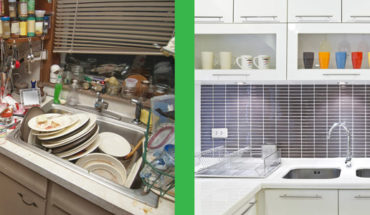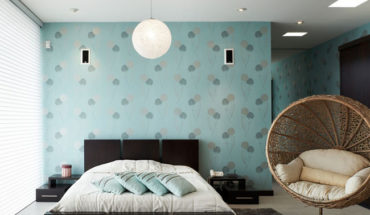As the owner of a vacation rental property, you are likely already know that listing a property and renting it to guests comes with risks. Maintaining your property is crucial, but accidents can and will still occur, and damage can happen. Security deposits ensure your belongings or things in the rental property that are broken or damaged will be paid for. Including a security deposit comes with pros and cons.
What is the Security Deposit Airbnb?
An Airbnb security deposit is a predetermined fee guests pay. It is meant to compensate you for any damage that might occur while they are onsite. The deposit is refunded to the guest after their stay if no damage occurred. Airbnb makes it possible for hosts to require a deposit to cover damages. As an example of how the Airbnb security deposit works, if a guest were to break something or spill something that stains, you can charge for cleaning costs out of the security deposit.
A security deposit means you can keep all or a portion of the money to cover the cost of cleaning. You don’t need to request money from the guest after the fact to take care of the cost and you have convenient access to the money, as long as you can justify keeping the deposit to deal with an issue.
Guests know prior to their stay about the deposit so there are no surprises when the deposit is not returned, in lieu of damages.
Airbnb’s Host Guarantee
You don’t need to charge a security deposit, but it’s important to understand what not doing so could mean. Too many hosts have thought Airbnb’s “Host Guarantee” would serve the same purpose of a security deposit, but this is not the case.
The Airbnb security deposit is for property damage and covers what extends beyond “reasonable wear and tear.” On the other hand, the Host Guarantee offers up to $1 million in protection and is intended in instances of “rare damage.” Hosts don’t need to implement a security deposit in order to benefit from the Host Guarantee. The two fees are separate from one another.
Airbnb’s Host Guarantee does not cover; personal injury and property damage claims from third parties, damage to shared or common areas of the building that aren’t part of the listing itself, cash and securities, damage caused by a pet, or damage from ordinary wear and tear. The Host Guarantee also does not cover certain items, including but not limited to: artwork; antiques items, including furniture and jewelry; valuable rugs, collectibles; and other items may have more limited protections under the Host Guarantee.
The Host Guarantee policy is something every Airbnb host property owner should be familiar with. Depending upon the type of property you are offering, if you allow pets, etc., charging a security deposit can add an extra level of protection for your property, should anything out of the ordinary occur. Be sure that all of your property and personal liability insurance is also up to date, as this can also help to mitigate any losses.
So do you need to charge a security deposit since you are covered by the Host Guarantee?
Most experienced Airbnb hosts would say “yes, absolutely.” There are too many horror stories out there about a host filing a claim against the guarantee only to learn their claim is not covered.
Does a Security Deposit Make My Property Less Appealing to Guests?
If you are concerned about guests being turned off by having to pay a security deposit, consider this: security deposits are refundable. You want to make the contract regarding a security deposit as airtight as possible, just in case you do need to keep the money due to damage. But in most cases, guests will do everything they can to get their security deposit back. Most of the time it won’t even be a question and you’ll be able to happily refund the money they’ve allowed you to hold “just in case.”
Presently, approximately 59 percent of Airbnb hosts require a security deposit. Deciding whether to charge a security deposit is up to the discretion of the host. Airbnb doesn’t recommend a specific amount to be charged per listing. Each property owner will need to set the amount of the security deposit.
The trend appears to be that the security deposit should not exceed 20 percent of the total price of the booking. Hosts are charging within a range of $100 to 500 per booking as a security deposit, on average.
This might seem like a decent amount more to pay, but if it’s being held on a credit card the guests won’t even know it’s missing. And it’s just a hold, so the money will be released once they’ve cleared the after-stay inspection.
However, it’s important to note for guests that if they attempt to do a booking using a card with a limited amount of money on it, it could affect how much they have to use while the hold is there. Most guests will figure this out on their own, but it’s a good customer service practice to let guests know the funds you’re holding won’t be available until after you’ve approved release.
Pet Deposits
If you allow pets on your property, it’s absolutely imperative you charge a security deposit for pets. This is in addition to any pet fees you charge. Here’s why:
Under the best circumstances, you charge an addition pet fee. Maybe it’s $10 per day or $50 per stay. Once a guest checks out with his or her pet, you need to clean and sanitize and there will probably be a bit of pet odor that requires a little extra refreshing. Or you need to do a more thorough job vacuuming in case a future guest has an allergy. You might even consider investing in an air purifier to deal with pet odors and the additional pet fee can go toward that cost. All in all, though, it’s worth it for everyone.
But let’s say someone’s pet is destructive. They chew up the couch or use the entire indoor space as their toilet. At that point you’re looking at hundreds of dollars or more to undo the damage caused by allowing pets to stay with guests at your property. Enter the pet security deposit. You’ve held onto funds that allow you to replace what was damaged or higher professional cleaners to deal with serious pet messes. It’s a lot more than a bit of extra cleaning after a pet stays with you, but you’re protected because of the deposit.

✔ How to avoid the BIG mistakes that most hosts make
✔ The secret weapon of all Top 1% Hosts
✔ The pricing strategy used by professionals
✔ How to consistently get gleaming 5-Star reviews
✔ How to free up your time without becoming a "robotic host"
This free training is brought to you by James Svetec an Airbnb Expert who has managed over $1M in bookings & Symon He, the founder of LearnBNB, the #1 Airbnb hosting education blog.
Learn about all of the secrets that professional hosts don't want you to know



